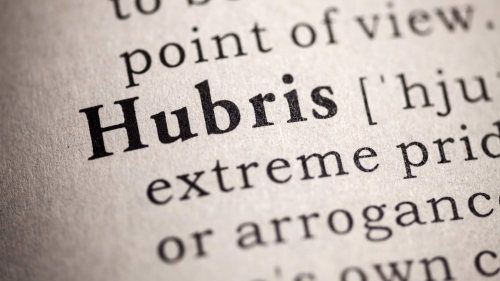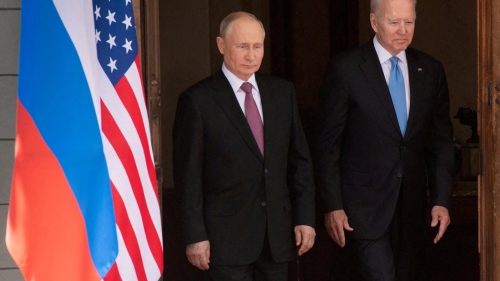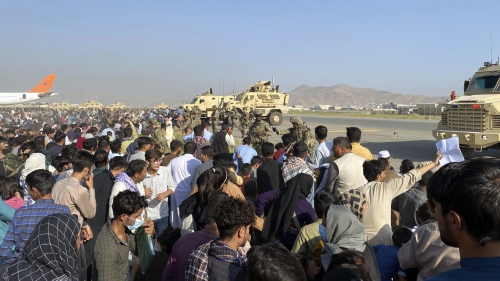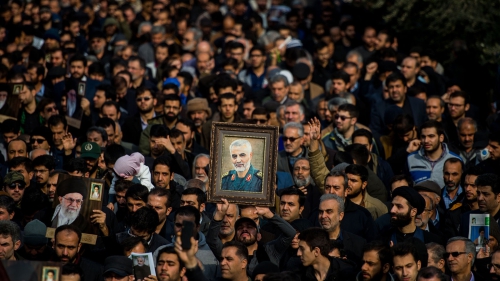Iraqi Leadership: Who's Next?
Reports from Baghdad last week at first indicated that Saddam Hussein had appointed his son, Qussay, as his deputy, to take full charge of Iraq's affairs in the event of Hussein's passing. A rebuttal to this report came Thursday in the Iraq's Babel newspaper from Hussein's eldest son, Uday. But regardless of whether Qussay is being groomed to succeed the current Iraqi president or just being granted more power, the controversy provides insight into the nature of Iraqi politics in the post-Gulf War era.
Saddam Hussein has been president of Iraq since 1979. In 1994, he added the office of Prime Minister to his resume. However despite Iraq's 1995 elections, in which Hussein won 99 percent of the vote, outsiders and opposition elements alike, continue to view the Iraqi leader as a dictator. Of course Hussein has repeatedly said and done things that lend credence to this perception. In an infamous interview a few years ago quoted by the BBC in December 1998, Hussein admitted to a European journalist that he had tortured and perhaps killed opposition opponents, saying, "Of course, what do you expect if they oppose the regime?"
But despite his 20-year iron grip on power, Hussein's country is in a shambles following nine years of sanctions as a result of the Gulf War and the 62 year-old leader is threatened by active American efforts to oust him from power.
Given the current instability in Iraq, Saddam Hussein is in dire need of a deputy he can trust to take over power if and when he is no longer able. Already Hussein has been forced into hiding and his ability to effectively rule the country is hampered by the fear of U.S.-backed insurrection. Iran's Islamic Republic News Agency (IRNA) reported on August 5 that Hussein suspects a sting operation inside Iraq. Quoting the international Arab daily Al-Sharq Al-Awsat, IRNA said Iraqi officials suspected a three-part plan consisting of clandestine operations against the Iraqi leadership, direct military action and the infiltration of pro-western opposition groups.
While it remains unclear if Qussay has actually been granted the number-two position, it is evident that Hussein's intentions are to find a suitable heir from among those closest to him. And despite his close reliance on such stalwarts as Foreign Minister Tariq Aziz, Hussein has increasingly placed the reins of power in the hands of his sons. Before a 1996 assassination attempt on Uday that left him crippled, Uday was widely believed to be the heir apparent. Uday is still one of the most visible members of Hussein's circle, controlling a television station and the Babel newspaper, as well as being head of Iraq's Olympic committee and the Iraqi journalists union. Rarely seen in public, the 32 year-old Qussay has only recently emerged as a prominent personality on the Iraqi power scene. Despite the controversy over his actual place in the line of succession, all reports indicate that Qussay has been granted increased powers and now controls security in Baghdad as well as the all-important jobs of supervising the army, commanding the elite Republican Guard and controlling the intelligence services.
Whether Uday remains Hussein's number two or Qussay becomes the heir apparent, it is clear Hussein intends to rely most heavily on those he can trust the most: his own sons. While Iraq's increasingly familial political atmosphere is reminiscent of other Gulf Arab family monarchies, Hussein's reliance on his sons can be seen as a direct result of the atmosphere of distrust and instability created by U.S. meddling in Iraqi affairs.
Despite all efforts by the United States to oust Hussein, U.S. pressure seems to have only consolidated Hussein's place in Iraqi politics. The political prominence of his sons ensures that Hussein's ideas will be carried out even in his absence. And the United States would not likely find Hussein's sons more conciliatory than their father. Uday has engaged in strong anti-western rhetoric in his various news outlets while Qussay is regarded by the U.S. State Department as no less ruthless and unmanageable than his father. In January of this year, State Department spokesman James Rubin blamed Qussay for personally supervising the killing of hundreds of Shi'ite dissidents in southern Iraq last November.
Saddam Hussein's increasing reliance on his sons represents a clear attempt to thwart American attempts to undermine his country and his leadership. And an ascendance to power of either Uday or Qussay could mean that American isolation of Iraq might not end with the death of Saddam Hussein.
Zakariya Wright is a staff writer at iviews.com

















